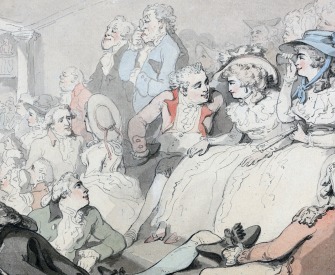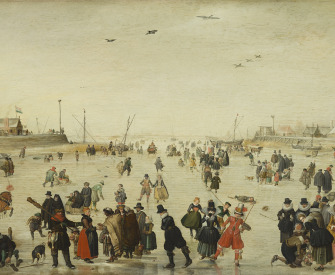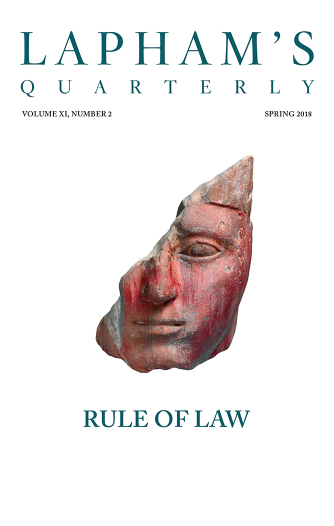The best physician is he who can distinguish the possible from the impossible.
—Herophilus, 290 BCPublic Health
Daniel Defoe’s rules for managing a plague.
Orders conceived and published by the Lord Mayor and aldermen of the City of London, concerning the infection of the plague:
Whereas in the reign of our late sovereign King James, of happy memory, an act was made for the charitable relief and ordering of persons infected with the plague; whereby authority was given to justices of the peace, mayors, bailiffs, and other head officers, to appoint within their several limits, examiners, searchers, watchmen, keepers, and buriers for the persons and places infected—and to minister unto them oaths for the performance of their offices. It is now upon special consideration thought very expedient for preventing and avoiding of infection of sickness (if it shall so please Almighty God) that these officers following be appointed, and these orders hereafter duly observed.
Examiners to be appointed in every parish
First, it is thought requisite, and so ordered, that in every parish there be one, two, or more persons of good sort and credit—chosen and appointed by the alderman, his deputy, and common council of every ward—by the name of examiners, to continue in that office the space of two months at least. And if any fit person so appointed shall refuse to undertake the same, the said parties so refusing, to be committed to prison until they shall conform themselves accordingly.
Searchers
That there be a special care to appoint women searchers in every parish, such as are of honest reputation and of the best sort as can be got in this kind—and these to be sworn to make due search and true report to the utmost of their knowledge whether the persons whose bodies they are appointed to search do die of the infection, or of what other diseases, as near as they can.
That no searcher during this time of visitation be permitted to use any publick work or employment, or keep any shop or stall, or be employed as a laundress, or in any other common employment whatsoever.
Chirurgeons
Chirurgeons shall visit and search such like persons as shall either send for them—or be named and directed unto them—by the examiners of every parish, and inform themselves of the disease of the said parties.
And forasmuch as the said chirurgeons are to be sequestered from all other cures, and kept only to this disease of the infection: It is ordered that every of the said chirurgeons shall have twelve pence a body searched by them—to be paid out of the goods of the party searched, if he be able, or otherwise by the parish.
Notice to be given of the sickness
The master of every house, as soon as any one in his house complaineth either of botch, or purple, or swelling in any part of his body, or falleth otherwise dangerously sick without apparent cause of some other disease, shall give knowledge thereof to the examiner of health, within two hours after the said sign shall appear.
Sequestration of the sick
As soon as any man shall be found by this examiner, chirurgeon, or searcher to be sick of the plague, he shall the same night be sequestered in the same house, and in case he be so sequestered, then, though he afterward die not, the house wherein he sickened should be shut up for a month, after the use of the due preservatives taken by the rest.
Burial of the dead
That the burial of the dead by this visitation be at most convenient hours, always either before sun rising, or after sun setting, with the privity of the church wardens or constable, and not otherwise; and that no neighbors nor friends be suffered to accompany the corps to church, or to enter the house visited, upon pain of having his house shut up, or be imprisoned.
And that no corps dying of infection shall be buried, or remain in any church in time of common prayer, sermon, or lecture. And that all the graves shall be at least six foot deep.
No infected stuff to be uttered
That no clothes, stuff, bedding, or garments be suffered to be carried or conveyed out of any infected houses, and that the criers and carriers abroad of bedding or old apparel to be sold or pawned be utterly prohibited and restrained, and no brokers of bedding or old apparel be permitted to make any outward shew, or hang forth on their stalls, shop boards, or windows toward any street, lane, common way or passage, any old bedding or apparel to be sold, upon pain of imprisonment.
Every visited house to be marked
That every house visited, be marked with a red cross of a foot long, in the middle of the door, evident to be seen, and with these usual printed words, that is to say, Lord have mercy upon us, to be set close over the same cross, there to continue until lawful opening of the same house.
Hackney coaches
That care be taken of hackney coachmen, that they may not—as some of them have been observed to do after carrying of infected persons to the pesthouse, and other places—be admitted to common use, till their coaches be well aired, and have stood unemploy’d by the space of five or six days after such service.
Care to be had of unwholesome fish or flesh, and of musty corn
That special care be taken that no stinking fish, unwholesome flesh, musty corn, or other corrupt fruits of what sort soever be suffered to be sold about the city, or any part of the same.
That the brewers and tippling houses be looked unto for musty and unwholesome casks.
That no hogs, dogs, or cats, or tame pigeons, or conies, be suffered to be kept within any part of the city, or any swine to be, or stray in the streets or lanes, but that such swine be impounded by the beadle or any other officer, and the owner punished according to act of common council, and that the dogs be killed by the dog killers appointed for that purpose.
Beggars
Forasmuch as nothing is more complained of than the multitude of rogues and wandering beggars that swarm in every place about the city, being a great cause of the spreading of the infection, and will not be avoided, notwithstanding any order that have been given to the contrary: it is therefore now ordered, that such constables, and others whom this matter may any way concern, take special care that no wandering beggar be suffered in the streets of this city, in any fashion or manner whatsoever, upon the penalty provided by the law to be duly and severely executed upon them.
Plays
That all plays, bear baitings, games, singing of ballads, buckler play, or such like causes of assemblies of people, be utterly prohibited, and the parties offending severely punished by every alderman in his ward.

Daniel Defoe
From A Journal of the Plague Year. In his mid-twenties in 1683, Defoe abandoned preparations for the ministry, opting to try his luck as a merchant and later as a political pamphleteer. His fictionalized account of the Plague of 1665 that killed approximately eighty thousand Londoners appeared more than fifty years after the event. Defoe published Robinson Crusoe in 1719 at the age of fifty-nine.


